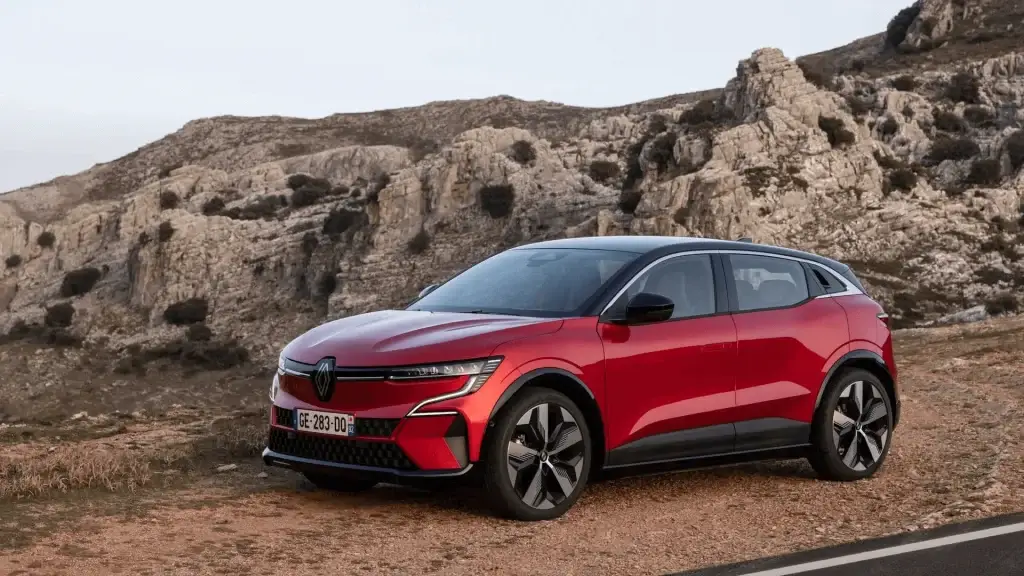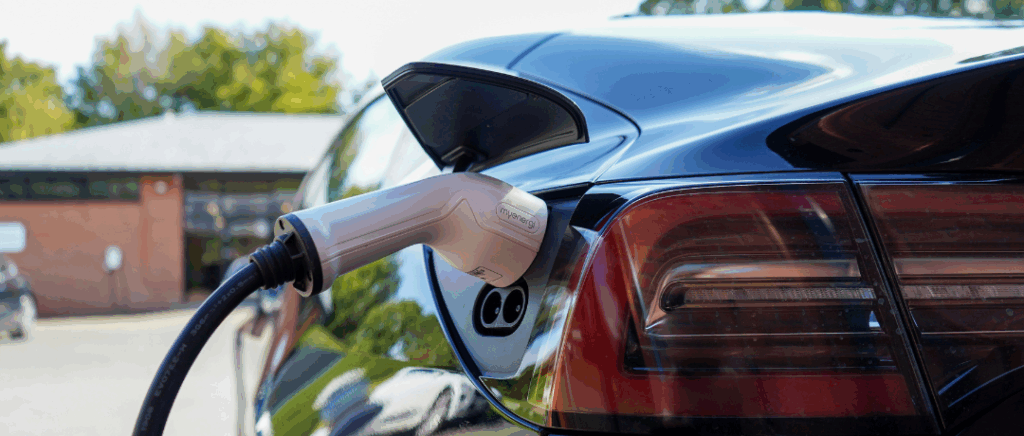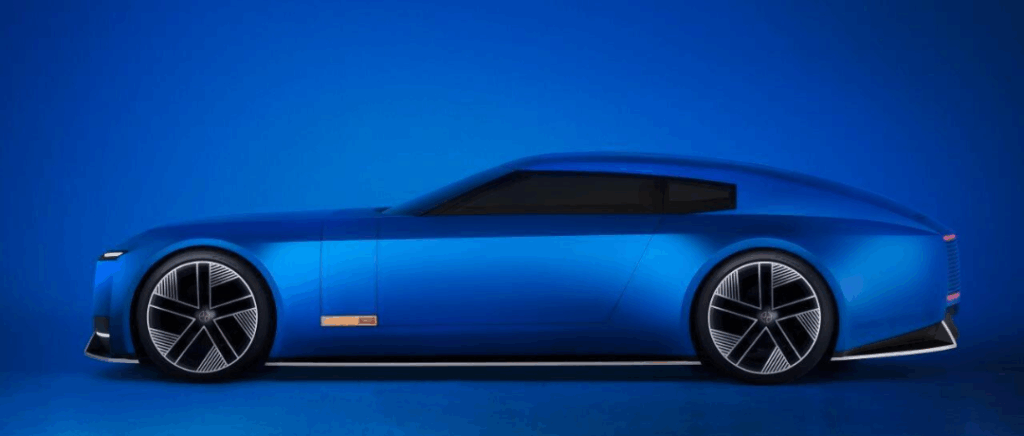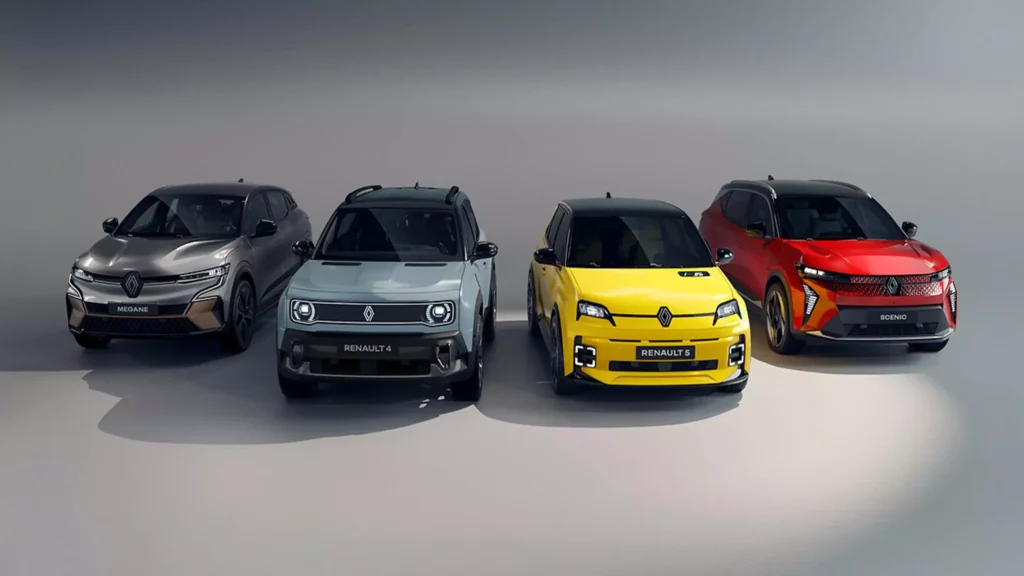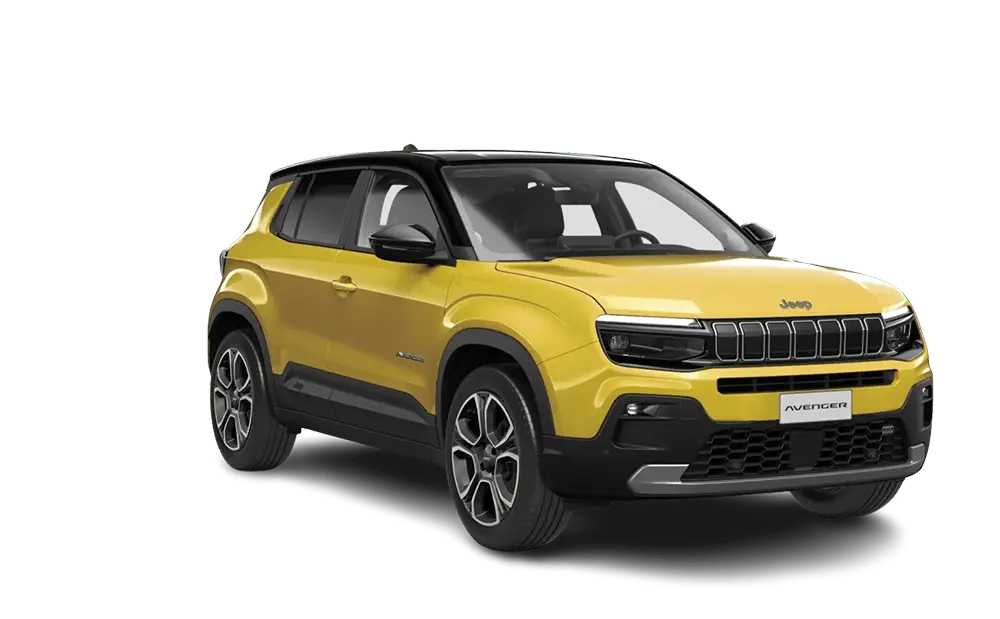
VS
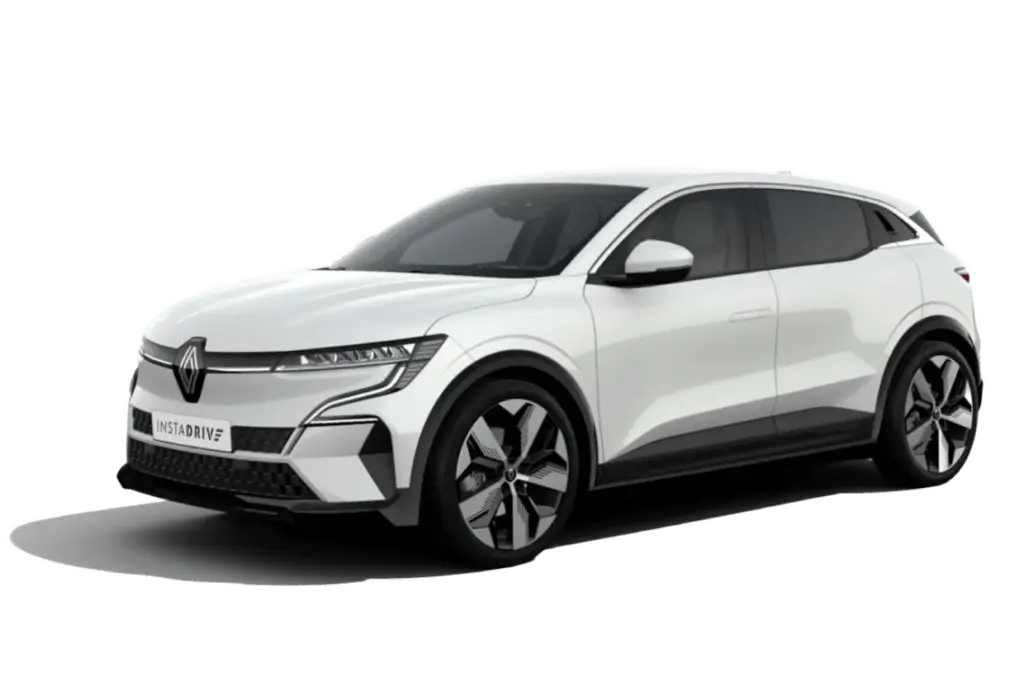
Compare the Jeep Avenger vs Renault Mégane E-Techin our electric car comparison tool
Test Renault Mégane E-Tech: the Renault Mégane changes radically
Forget the previous generation of the Mégane. E-Tech version is getting a facelift and, at a time when cars are getting bigger and bigger, the Mégane E-Tech is 15 cm smaller than the fourth-generation Mégane. It measures 4.21 metres in length, 1.77 metres in width (excluding rear-view mirrors) and 1.51 metres in height. The car is based on the CMF-EV platform, shared withNissanon its new SUV, the Ariya, with a host of technical choices, starting with a longer wheelbase that stretches to 2.70 metres to compensate for the few centimetres lost in length.
Looking at the photos, you're probably wondering which segment the Mégane E-Tech. After our test drive, we unfortunately don't know any more than you do, as the brand's representatives place it in the category of SUVs, sports cars and sports cars.compactand crossovers. Be that as it may, with its shape and dimensions, it seems to belong more to the crossover segment, even if its slightly sloping roof, giving it a rather dynamic appearance, brings it closer to a compact car. In any case, the design is a success.
A more technological, higher-quality cabin
Inside, Renault has come up with an excellent surprise. It's a brand new feature that will no doubt be adopted by the rest of the Renault range, and that's good news for the brand because it's such a success. The steering wheel is pleasant to hold and groups together all the driving aid controls and those for operating the12.3-inch instrument screen located right in front of the driver. To the right of this screen is another 12-inch touchscreen (9 inches on the entry-level 'Equilibre' version).
Both screens shine in terms of responsiveness and graphic quality. The old R Link system seems a long way off and the newOpenR Link infotainment systemhas been redesigned, with excellent ergonomics and several physical controls as shortcuts under the screen. This is very practical, particularly for the air conditioning.
Modern cars also mean connected cars. And the Mégane E-Tech is, as it integrates Google technologies directly into its on-board system, including Google Maps, Google Assistant and the Play Store. Google Maps acts as a benchmark and will guide its users with precision, while keeping an eye on theautonomy You'll be able to see what percentage of your journey you have left, and how far you'll get to your destination. What if there's not enough range? Don't panic, the Mégane is equipped with a journey planner that will guide you to a recharging point. The system is, of course, compatible with Apple CarPlay and Android Auto wirelessly.
In terms of connectivity, the Mégane E-Tech benefits from over-the-air (remote) updates and is paired with theMyRenault application. The application allows you to stay constantly connected to your car and trigger certain functions remotely, such as remote recharging or ventilation if the car has been parked too long in the sun.
Still on the subject of on-board technology, Renault has thought of integrating an interior rear-view mirror equipped with a small screen. It will be possible to switch to a conventional mirror, but as the rear window is very narrow, the screen is more practical for seeing what's going on. The disadvantage of this type of technology is that it can be reflected by the sun, sometimes confusing the screen with the mirror.
The interior screen mirror is part of the Augmented Vision and Advanced Driving Assist option pack which also incorporates blind spot detection, lane keeping assistant, automated parking assistant 360-degree cameraand rear collision warning. This pack is available for €1,300 or €1,700, depending on the trim level.
And what does this mean in terms of build quality? The Mégane seems to have put an end to its sometimes inconsistent interior quality. The materials are of good quality, and the entire upper section of the dashboard is made up of soft-touch foam elements. Compared with its main rivals, including theVolkswagen ID.3at the top of the list, the Mégane does much better.
Monday to Friday 9am - 12.30pm - 2pm - 7pm
Test Renault Mégane E-Tech: as welcoming as the previous generation?
The Mégane feels comfortable, but is it welcoming? The answer is yes, especially for a car that's just over the 4 metres longwhich is still fairly compact today. Renault announces a 389-litre boot (1,245 litres with the seats folded down), 13 litres less than the Mégane IV.
Beware, however, that the claimed capacity includes the small hatch under the floor of the boot for storing the charging cables. And under the bonnet, too bad, there's no small boot like in a Tesla Model 3It's the electric motor. The technical explanation is simple: the brand has opted for this architecture rather than an electric motor. direct installation on the rear axle to limit the length of the cables and to be able to imagine a short-circuit cooling system.
And forfamily travel? That's also possible, even if the Mégane is not a true family car. Two adults can sit in the back without too many problems, although passengers over 1.80 metres tall may feel cramped. On the other hand, you don't need to be claustrophobic, as the glass surface is far too thin, letting in very little light.
A complicated range structure
Hold on to your hats, the Renault Mégane E-Tech is not simple. It is made up of two versions named EV40 and EV60. They have battery 40 and 60 kWh and the respective powers of 130 and 220 hp. This also has an impact on battery capacity and therefore range. The first version claims a range of 300 kilometres under the WLTP cycle, while the second can go up to 470 kilometres. Customers can also opt for an EV60 version, with the larger battery and smaller 130bhp engine.
When you get to the recharging chapter, things get complicated, and that's when you wonder why simplify when you can complicate. The Mégane EV40 in the entry-level range has a 7 kW on-board charger. A second level, called 'Boost', adds a fast charge of up to 85 kW. That's good, but not crazy either, since most electric cars now exceed 100 kW.
Passing over the Mégane E-Tech EV60fast charging can be up to 135 kW, enabling you to recover 300 kilometres of range in 30 minutes. In our opinion, this is the most interesting version on paper, especially as Renault has incorporated a battery pre-heating function to quickly reach recharging power.
What about 22 kW charging? Here again, it's complicated, as you have to opt for the top-of-the-range version with the 'Optimum' option. This type of charging could have been offered as standard, although Renault justifies this by pointing out that few customers use this type of charging as they mainly recharge at home.
What's it like behind the wheel?
To take one, if not all, of them in hand France's most important new product of 2022We took a trip to the hinterland of Málaga, Spain, where the roads were very smooth and the terrain sometimes quite rugged. This gave us some interesting initial fuel consumption figures.
The ease of use of the Mégane E-Tech is appreciable and silence reigns on board. Renault points out that they have managed to reduce the noise inside the Mégane by three decibels compared to a Zoé, which is already excellent in this respect. For our test drive, we were only allowed to drive the version equipped with the electric motor. 220bhp and 300Nm from the large 60kWh battery. Renault is announcing a 0 to 100 km/h in 7.4 seconds and a maximum speed limited to 160 km/h (150 km/h for versions with the 130 hp engine).
After a hundred or so kilometres on board, it's hard to fault the car's road manners. The Mégane E-Tech manages to reconcile two contradictory qualities: comfort and dynamism. The suspension, which is not controlled, is well adjusted. They are supple enough to cope with the roughness of the road, but also firm enough to curb the roll that is inherent in this type of car, which is a little high up on its legs.
Despite the 20-inch wheels of our test model, comfort is excellent. However, if you're a stickler for comfort, you'll notice a little wobble at low speeds due to the size of the rims, which reduces the travel of the rear shock absorbers. Smaller rims will certainly curb this phenomenon.
The chassis is also very good, and the engineers at Alpine (formerly Renault Sport) have a lot to do with that. In the dynamic driving phase, it's a joy to drive, the steering is very incisive and the centre of gravity, which is very low thanks to the batteries, means that the car is glued to the road. The balance between comfort and dynamism is excellent, while its weight of 1,636 kgFor an electric car, this means it's pretty agile.
Test Renault Mégane E-Tech: keeping fuel consumption under control
And what about fuel consumption? After driving on the motorway at 120 km/h (the limit in force in Spain), we recorded around 20 kWh/100 km. Then, on our 220-kilometre test drive, which included a lot of secondary roads and winding country roads, we averaged 17.8 kWh/100 km. The car has a four-stage energy recovery system. The system is well managed, although we would have preferred to see the e-Pedal system from the Nissan LeafThis allows the vehicle to be driven with a single pedal until it comes to a complete stop.
As far as driving aids are concerned, it's a classic for a modern car, with a whole range of aids making the Mégane E-Tech a model with level 2 semi-autonomous driving. We find, for example, the cruise control adaptive cruise control with road sign recognition. It is also indexed to the navigation system and adapts its speed according to the arrival of bends and roundabouts. Now for the 'painful' part.
How much will the Renault Megane E-Tech cost?
The Renault Mégane E-Tech starts from 37,200 euros for the EV40 versionbefore environmental bonus of €5,000. This represents 260 €/month in terms of monthly payments, with a 37-month leasing contract and a contribution of €5,500.
For this price, you're entitled to a model with a 40 kWh batterywith a WLTP range of 300 kilometres and a 130 hp engine. The downside is that this Standard Charge" version has no DC fast charger, and that's a drawback on long journeys.
Our EV60 'Super Charge Techno' test version, with a 60 kWh battery, a range of 450 kilometres WLTP, 220 bhp and virtually all the options, retails for 47,400 euros. The car comes generously equipped, with a 12-inch screen, connected services, heated leather steering wheel and maximum DC charging power of 130 kW as standard. With a marketing effort, Renault can take the car below the 47,000 euros and benefit from the maximum bonus of €6,000, recently extended until the end of the year.
Test Renault Mégane E-Tech: the final word
How would you sum it up? On the whole, nothing but positive, because even if the range structure is complicated, it's hard to find fault with the car itself. The EV60 version should appeal to more customers and can easily become the first car in the household, without having to worry about recharging.
Renault has also made great strides in terms of the quality of the materials, technologies and assemblies used. The car does not necessarily have much to envy a Volkswagen ID.3 which claims to be 'access premium'. Renault is hitting hard and the Mégane E-Tech should undoubtedly meet with the success it deserves.
Read also:
- Mercedes EQE test: a new benchmark for comfort
- Discover our other electric car tests
